THE REPAIR CENTRE
Manchester
Past Project
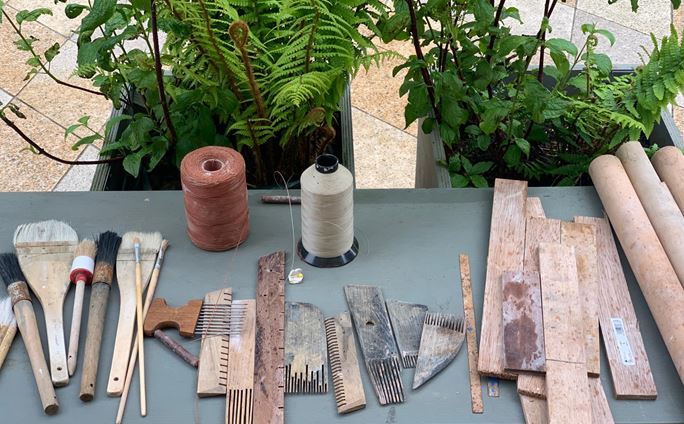
The Repair Centre
The Repair Centre will connect a group of people in recovery from substance use issues with cultural venues, creative professionals and artists from Greater Manchester. Through participation, we'll support individuals with social re-integration, increased employability and promote wellbeing through high quality hands-on learning and engagement with contemporary art.
Inspired by the Japanese tradition of Kintsugi, The Repair Centre will support people in recovery, their family, friends or significant others, facing additional barriers to work by improving employability through creative, practical, and soft skill development, whilst facilitating new thinking about recovery processes and acts of repair.
A blended approach to learning offers a programme of real-world professionalising experiences, and insights into creative/cultural industries. The programme includes a series of workshops and learning activities, leading up to a public event.
"Kintsugi (gold joining), or kintsukurai (gold repair) is a Japanese repair technique that takes ceramic destruction and makes a broken object into a new entity. It leaves clear, bold, visible lines…and gold to mark the scars, it never hides the story of the object’s damage"
Bonnie Kemske, ‘Kintsugi the Poetic Mend’, Bloomsbury Herbert Press, 2021. Chapter 1, Cracks Made Whole in a Golden Repair, p12.
This act of repair made with painstaking time and care, documents an objects history, whilst making it stronger and arguably more beautiful. Kintsugi philosophy evidence’s that something new, useful, and more interesting can come out of damage, loss and change. This may be paralleled in the stories of people in recovery, but society does not always value those who have experienced these reconstructive, mending processes.
‘The Repair Centre’ is specifically interested in the relationship between the two philosophies of Kintsugi and Recovery and what each can learn from the other for acts of repair and transformation. Can people previously viewed as broken and unfit for purpose, be seen as renewed, transformed and valuable assets to society? We wish to challenge prevalent perceptions of the recovery community by metaphorically and physically exploring these concepts through object making and repair.
We are delighted to be working with the following artists on The Repair Centre:
James Ackerley, presenting workshops celebrating imperfection in object making
Jayne Gosnall, leading workshops on Japense-inspired textile mending
Bonnie Kemske, leading an expert talk about the art of Kintsugi
Carol McNicoll, presenting a guest-artist workshop in textiles
Maisie Pritchard, guiding workshops in accessible and low-cost object making and repairing with paper pulp
Jenny Walker, leading a series of workshops in Kintsugi-inspired and alternative approaches to ceramic repair
Our partners at Manchester Metropolitan University’s Special Collections Museum will be giving participants an insight into conservation work, where they’ll handle objects from the collections relating to the theme of repair.
At Boiler House, staff will provide insight into the activities they run and host, with options for participants to get involved with the Repair Cafe, or to find routes into volunteering, community work and learn about what’s available within the programme for future visits.
There will be additional expert talks provided by Manchester Craft and Design Centre, about working in the industry.
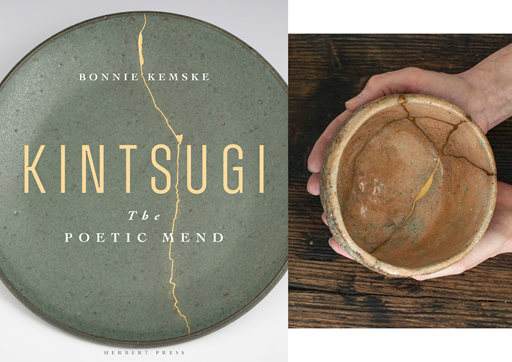
Bonnie Kemske is a professional artist and writer, with a practice-based PhD in ceramics from the Royal College of Art, London. She has authored two books for Herbert Press/Bloomsbury, both drawing on her experience and training in ceramics and Japanese tea ceremony. With an emphasis on story-telling, Kintsugi: The Poetic Mend tells the story of the Japanese lacquer and gold repair technique, weaving together its history, contemporary use, and strong metaphoric loading. Bonnie will give a talk to our participants.
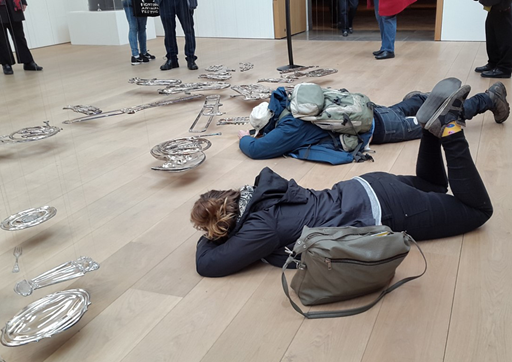
Jenny Walker is freelance artist, researcher and creative producer, writing and leading projects that focus on the made-world and the benefits of engaging with creative thinking and material making, as a tool to wellbeing.
She has worked with Portraits of Recovery over a number of years, writing and developing 4 projects including ‘Typecast Manchester’ (2014) an international project which explored the relationship between clay and recovery. Jenny has a background in object making and was lecturer in design at Manchester School of Art from 2006-2016.
Jenny is currently working with a number of organisations and cultural institutions including Paradise Works artist studios, Salford; The Bradford Pit Project; Manchester School of Art and Fireground Museum, Rochdale.
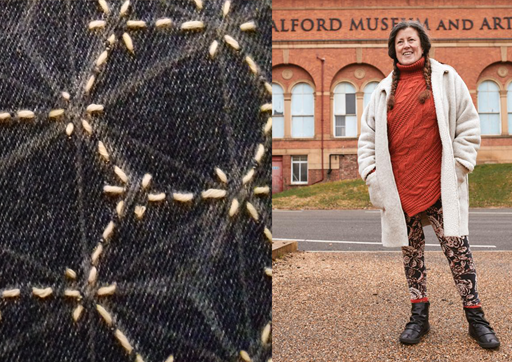
Jayne Gosnall is a proud Recoverista Sista and creativity has been a vital part of her recovery over the last 10 years, as she sought out creative ways to heal and grow. Jayne participated in PORe projects Typecast, Twelve and Wonderland, before volunteering for PORe’s film project My Recoverist Family and organising community tickets for arts events in Greater Manchester. Inspired by her care for the conditions of workers in textile and fashion production, Jayne has learned natural dyeing techniques, darning, redesigning and recycling fabrics and to the powerful Japanese traditions of Sashiko and Boro. Jayne mends in a way that is inspired by those traditions which were created out of poverty, resourcefulness and skills passed from generation to generation. Jayne is currently an almost full-time carer for her partner, Shaun.
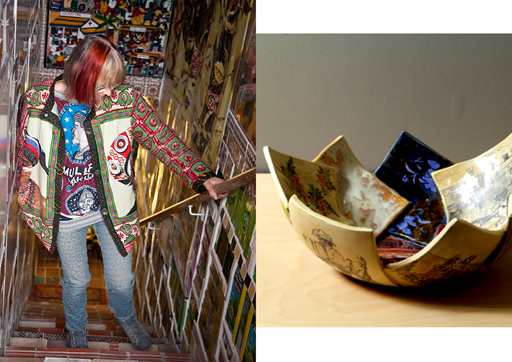
Carol McNicoll is one of a group of female artists who transformed the British ceramics scene in the 1970s, but she is also inspired by her first skill: making clothes. She studied Fine Art at Leeds Polytechnic before completing an MA at the Royal College of Art. McNicoll has designed collections for Next Interiors and Axis Diffusion, lectured and exhibited widely in the UK and internationally. Her work is held in public collections including the Victoria and Albert Museum; National Museum Wales; Ulster Museum, Belfast; National Museums Australia; the Stedelijk Museum, Amsterdam, and Museum Boijimans Van Beuningen, Rotterdam. In 2001 she was short-listed for the Jerwood Prize for Ceramics and a major Crafts Council retrospective of her work toured the UK from 2003 – 2005.
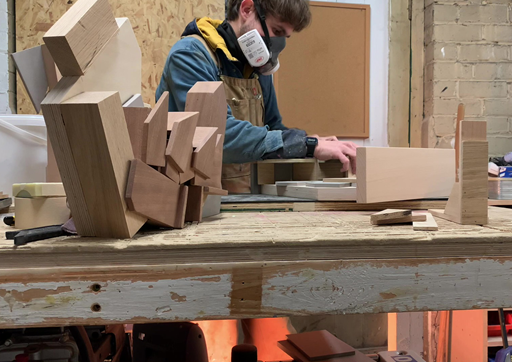
James Ackerley is an artist and designer working across sculpture and installation. An interest in materials, processes and collaboration drives his practice. Recent work explores how art can be used as a tool to teach, to enrich people's lives and strengthen and build communities through workshops, skill-shares and co-production. Creative activities include commissions and installations for art galleries and museums, socially engaged projects with schools, charities and community groups, as well as product design, consultation and furniture making.
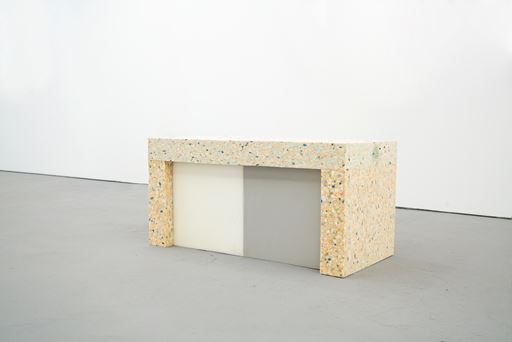
Maisie Pritchard graduated from Manchester School of Art in 2019 and was awarded the Paradise Works graduate studio bursary (where she is currently based). Since then, Maisie has worked as an artist-facilitator with organisations such as Manchester Metropolitan University, HOME, and The Princes Trust. She is currently developing a community project with The National Festival of Making, as well as a series of workshops for A Modest Show, taking place alongside BAS9.
During 2020, Maisie exhibited a series of works titled Semi-functional Series as part of Soft Display, curated by Division of Labour and Alistair Woods. She also exhibited Mantlepieces Sculptures as part of Paradise Works’ Multiples Shop at The Manchester Contemporary in 2021. Maisie is currently exploring design and making processes in sculpture and is concerned with the juncture between artistic production and functional design. Operating within this grey area, Maisie’s intentions are to produce objects that exist in a sphere of their own.
Managed by the WEA, the Greater Manchester ESF Community grant programme will help thousands of people who face additional barriers in the workplace to improve their employability, move closer to the labour market or gain permanent employment.
Delivered by Portraits of Recovery in partnership and collaboration with Manchester Craft and Design Centre, creative producer Jenny Walker, and recruitment partners Change Grow Live.

 Menu
Menu